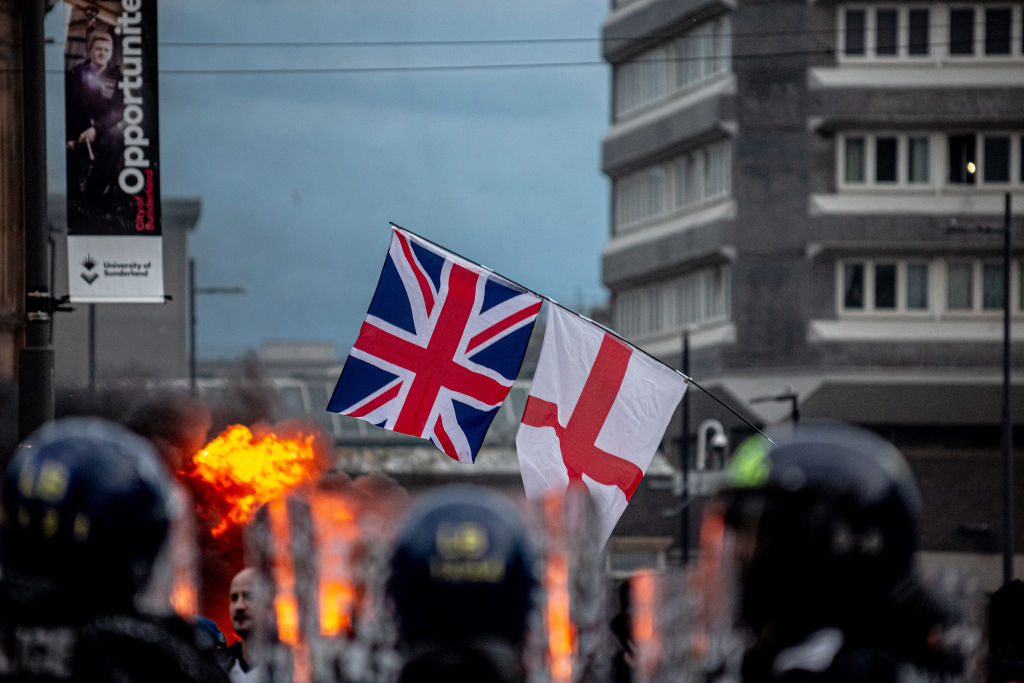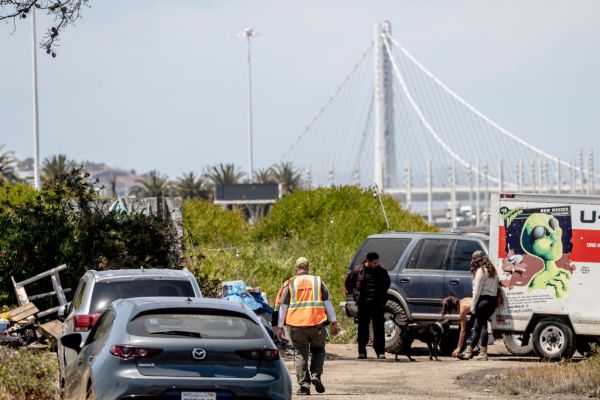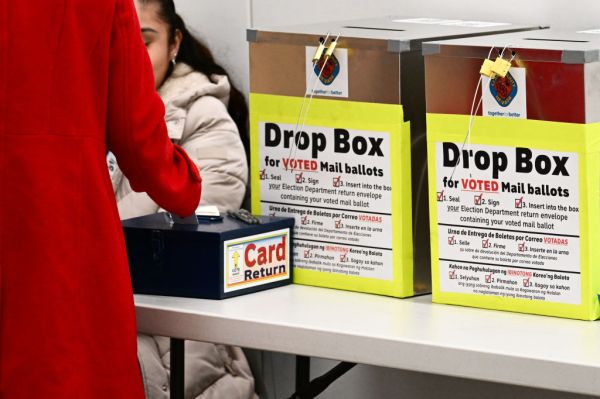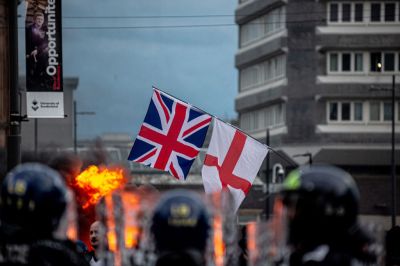On July 29, two young girls—Bebe King, 6, and Elsie Dot Stancombe, 7—were killed in a mass stabbing at a Taylor Swift-themed dance class in Southport, England. By the following morning, a third girl, Alice da Silva Aguiar, 9, succumbed to her injuries. Eight other children and two adults also were critically injured. Police arrested Axel Muganwa Rudakubana at the site of the crime and later charged him with the murder of the three girls, 10 additional counts of attempted murder, and possession of a curved kitchen knife. The gruesome incident is the worst attack against children in the U.K. since the Dunblane massacre in 1996.
In the hours following, false claims circulated on social media that the perpetrator was a Muslim immigrant who had arrived by boat. The misinformation set off a series of riots across Great Britain and Northern Ireland. The unrest began in Southport the day after the stabbings, as police clashed with as many as 1,000 rioters at a local mosque, with some 50 officers injured. In the days that followed, additional violence broke out in more than 20 British towns and cities, including London, Birmingham, Manchester, Liverpool, and Belfast, in Northern Ireland.
As of last week, more than 400 people had been arrested and police remained vigilant—deploying about 6,000 riot officers over the weekend—about the prospect of further violence. The widespread rioting has quickly surpassed the last series of significant U.K. riots more than a decade ago, when there was violent unrest following the death of Mark Duggan, who was shot by London’s Metropolitan police.
Who is responsible for the stabbings?
Rudakubana is not a Muslim nor is he an immigrant. He was born in the Welsh city of Cardiff in 2006 to Rwandan parents who came to the U.K. in 2002. Since 2013, the family has lived in the village of Banks, Lancashire, a few miles outside Southport.
After moving to Banks, Rudakubana got involved in local theater and in 2017, he had a role in a West End musical. He was also picked up by a children’s casting agency and in 2018 appeared in an advertisement for the BBC’s Children in Need, a program that supports local charities across the U.K. The video has since been taken down from the internet.
Neighbors described Rudakubana as a quiet and shy boy, who was often heard singing. Rudakubana’s motive in the attack remains unknown. In his court appearance on August 2, he hid much of his face inside his shirt and did not give a statement.
As coverage of the riots has continued, Rudakubana’s motive and identity—and the lives lost in Southport—have become less significant than analysis of the online, far-right, and anti-immigrant nature of the riots.
Social division fueled by social media speculation.
Located on England’s northwest coast, roughly 20 miles north of Liverpool, Southport is best known as a pleasant seaside destination. Yet, the riots that began there following the stabbing exposed a growing cultural and political rift of national—if not international—proportions.
One of the stabbing victims described the ensuing riots as having very little to do with the stabbings themselves. “There appears to be an undercurrent of discontent for some time about the levels of immigration and this is just a catalyst or a trigger—I don’t think it’s the root cause,” John Hayes told The Independent. The 63-year old Hayes was stabbed in the thigh while attempting to protect children in the dance class.
Before authorities released Rudakubana’s identity, the name “Ali Al-Shakati” was already circulating online as the purported suspect. National media outlets were quick to describe the identity as false, but to little avail. Instead, anti-immigrant activists succeeded in continuing to stoke fears about Muslim immigrants.
The U.K. court released Rudakubana’s name on August 1, just days before the suspect turned 18, in hopes of curbing the riots and misinformation. U.K. courts generally do not release the names of minors, but Judge Andrew Menary told reporters that he decided to make Rudakubana’s name public because “continuing to prevent full reporting at this stage has a disadvantage of allowing others up to mischief to continue to spread misinformation in a vacuum.”
The new information did little to quell the unrest, and the conflict continued to grow both on city streets and in online forums, including X, WhatsApp, and especially Telegram. One scholar estimated that there were more than 27 million impressions on social media speculating that the Southport attacker was a Muslim, migrant, foreigner, or refugee.
But several of the central figures in the online activity aren’t in the U.K. at all. Tommy Robinson, whose real name is Stephen Yaxley-Lennon and who cofounded the English Defence League (a largely defunct far-right group that argued Muslims could not integrate into English society), posted from Cyprus about the riots, speculating that U.K. authorities were manipulating the public about the suspect’s identity. British-American social media influencer and self-described misogynist Andrew Tate said that the Southport attacker was an illegal migrant and later admitted he was wrong. He is currently awaiting trial in Romania on charges of rape and human trafficking, and will subsequently be extradited to the U.K. on further charges of sexual aggression.
Russian websites and state media are also suspected of promoting the false news, publishing misinformation on the site Channel 3Now.
On the streets, Labour government reaction.
Some of the worst violence occurred on August 4 outside of Birmingham, in the town of Rotherham. There, hundreds stormed a Holiday Inn Express known to house asylum-seekers. The rioters pelted police with bricks and chairs, and kicked in hotel windows.
Fears of more violence on Wednesday and Thursday were curbed by antiriot police and widespread counter-protests across the U.K. Thousands turned out to protect mosques, hotels housing asylum seekers, and agencies providing services to immigrants.
This is the first major crisis faced by Prime Minister Keir Starmer’s month-old Labour Party government. Starmer, who played a key role in the government’s response to 2011 riots as then-director of public prosecutions, has vowed to use the full extent of U.K. law against the rioters. The government has also assembled some 6,000 specialist police officers to respond to further violence. Of the more than 120 people who have been charged, two Southport rioters have been jailed for five years for their participation in the violence.






Please note that we at The Dispatch hold ourselves, our work, and our commenters to a higher standard than other places on the internet. We welcome comments that foster genuine debate or discussion—including comments critical of us or our work—but responses that include ad hominem attacks on fellow Dispatch members or are intended to stoke fear and anger may be moderated.
With your membership, you only have the ability to comment on The Morning Dispatch articles. Consider upgrading to join the conversation everywhere.